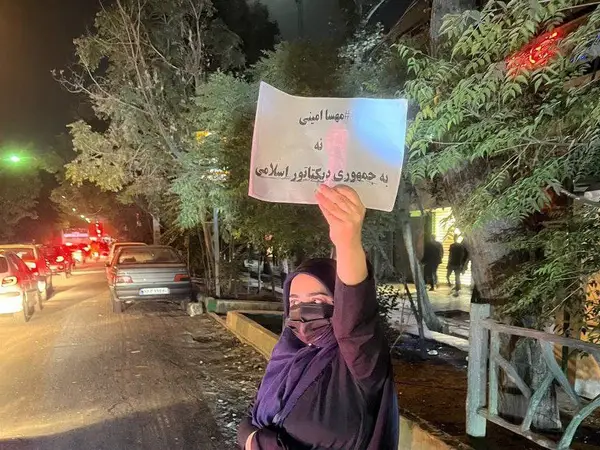While the nationwide uprising in Iran entered its second month on Saturday, IRGC Special Force Commander General Hassan Karami claimed, "the unrest is over!"
In an interview with the ultraconservative Hamshahri Online Karami also claimed that those taking part in the protests are not ordinary individuals. They were trained saboteurs, “expert in creating flash mobs using hit and run tactics, who were organized in groups of three or four and were armed with all sorts of weapons including grenades."
The IRGC general tried to portray the protesters as better armed than his special units, claiming that his forces just use “paintball shotguns”, while opponents display full metal jackets with war ammunition.
So far, security forces have killed more than 230 people, including around 30 children while around 20 security forces have died, mostly plainclothesmen who use clubs and shotguns to attack demonstrators.
He said as far as he was concerned the protests ended two weeks ago, adding that protesters lacked an ideology. He even claimed that some of them were paid to protest.
As he was making these claims, people were protesting in more than a dozen cities and a prison riot in Tehran Saturday evening rocked the capital.
As the world watches, Iranian protesters want freedoms like those enjoyed by citizens in most of the world and they seem to have reached the conclusion that their clerical regime has to go.
"Somebody is sitting in a studio abroad and tells the protesters to go ahead," the commander fantasized obviously with Hollywood and Bollywood blockbusters in mind. He quoted one of the detainees as saying, "Somebody gave me an Apple Phone and told me to take part in the protest for one day."
Meanwhile, IRGC General Hassan Hassanzadeh, the commander of Mohammad Rassoulallah Corps, which is in charge of Tehran’s security told the official news agency IRNA that 850 Basij militia members were wounded and three others killed in clashes with the protesters in Greater Tehran area. Some 185 Basij members were wounded in action in just one night, he said.
Hassanzadeh added that the Basij has 380 well-equipped combat ready battalions in Greater Tehran, and claimed that IRGC's commanders have banned the use of military weapons by these units. The claim is contrary to tens of videos going viral on social media that show Basij, IRGC and police personnel shooting at peaceful demonstrators in Tehran and other cities.
Boasting about IRGC's power, he said: "When the enemies seized an Iranian oil tanker, we seized three of their oil tankers and forced them to release our ship." However, he did not say how this is related to recent protests, other than a veiled threat of force.
He said the IRGC's eavesdropping operations have revealed that the enemies wrongly believed that that the regime in Iran is shaky and that the IRGC was unable to control the protests.
Meanwhile, General Esmail Kowsari, an IRGC officer who is currently a member of the Iranian parliament, charged in an interview that "Protesters in Iran were paid by the United States, Israel and Saudi Arabi, and that the United Kingdom, France and Germany also supported them."
He also opined that some of the protesters who play a leadership role should be harshly treated by security forces. He claimed that protesters should know that there are individuals in the regime who would be willing to listen to them if they respected the law.
On Thursday, six reformist parties wrote in a letter to President Ebrahim Raisi that they have lawfully requested permission for legal demonstrations in Tehran several weeks ago, but the Interior Ministry has refused to allow them to voice their lawful protest.
